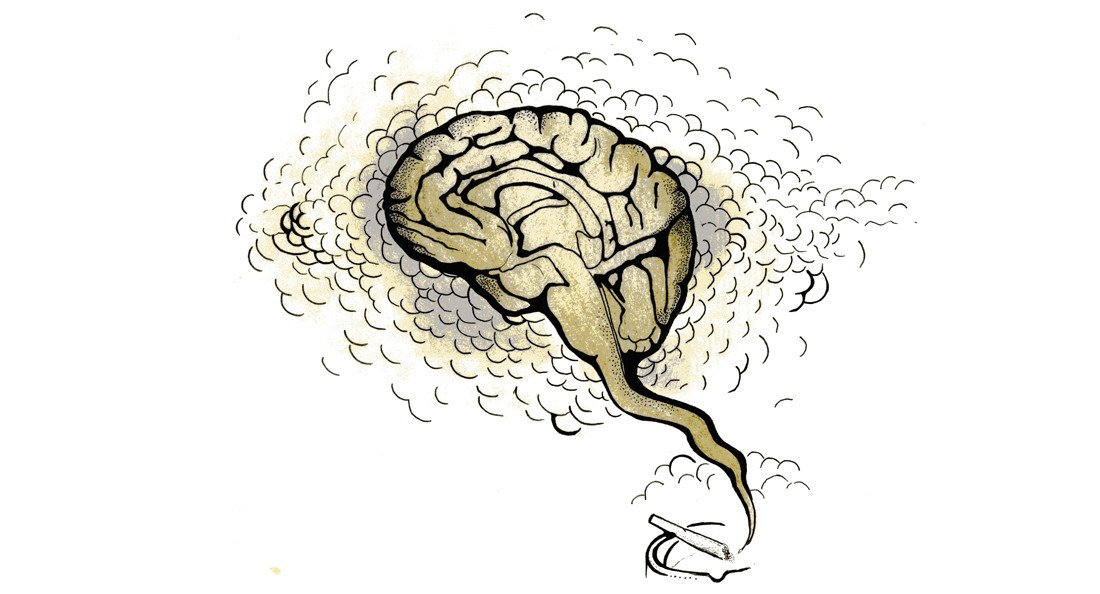Head held high
Clearing the smoke around cannabis and mental health
Weed. Jazz cabbage. The devil’s lettuce. Whatever you choose to call it, cannabis is becoming more socially accepted. But, as with everything, it contains both benefits and harms, particularly when it comes to mental health.
Reefer Madness, a cultish anti-drug propaganda film from 1936, describes it as “a violent narcotic, an unspeakable scourge … the real public enemy no. 1!” I remember being told in junior high that one joint does the equivalent lung damage of four cigarettes.
Messaging of the day encouraged children to “just say no” and warned that “weed is a gateway drug!”
How can we trust public health campaigns today when laughable propaganda was prevalent in former decades?
Resistance to the idea that cannabis can be a healthy addition to daily life comes as no surprise. Some glorify it while others demonize it. Stepping back to review unbiased evidence is a challenge.
The link between cannabis and psychosis has long been difficult to communicate. Cannabis does not cause psychosis, but rather triggers psychotic symptoms in those who are genetically predisposed to it.
It activates polymorphisms and variants of the Catechol-O-Methyltransferase (COMT) and AKT1 genes. More simply, it can activate symptoms such as delusions, hallucinations and disorganized thinking. Those who have a family history of psychosis should take caution not to smoke in excess.
The psychoactive compound tetra-hydracannabidiol (THC) has been found to worsen a variety of psychiatric conditions ranging from anxiety t0 mania to psychosis. It can induce panic, a sense of unreality and avolition (lack of motivation).
That said, THC can also be used to help stimulate appetite in those living with eating disorders, as well as to treat nightmares in those living with post-traumatic stress disorder.
The compound cannabidiol (CBD) has been found to do the exact opposite, reducing a variety of psychiatric symptoms ranging from anxiety to depression to insomnia. Structurally, CBD has been compared to newer-generation antipsychotic and anti-anxiety medications and has promise for emerging research in psychiatry as a therapeutic intervention for a multitude of problems.
Cannabis can be both good and bad. For each positive use, there is a negative effect elsewhere. Determining how it will affect mental health is highly ambiguous and varies from person to person. Factors such as family history of mental illness, substance misuse, life stressors and nutrition can all play a role in its effects.
A distinction must be made between using a tool to accomplish daily tasks versus to tolerate daily tasks. At what point do we draw the line between coping with symptoms and escaping reality?
Getting stoned at the end of a difficult day is without a doubt healthier than having a drink. However, the haze of everyday use could signify greater underlying problems and an inability to garner self-awareness surrounding your mental health. Like so many of life’s pleasures, moderation is essential.
We need a public health dialogue about cannabis that makes space for its benefits and potential risks, not one that alienates half of the population either way.
Chantelle Partyka is a registered psychiatric nurse and mental health advocate with a keen interest in tackling misinformation.
Published in Volume 73, Number 3 of The Uniter (September 20, 2018)







